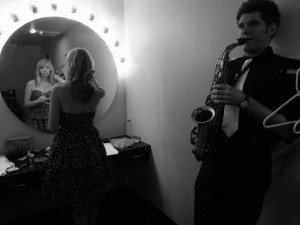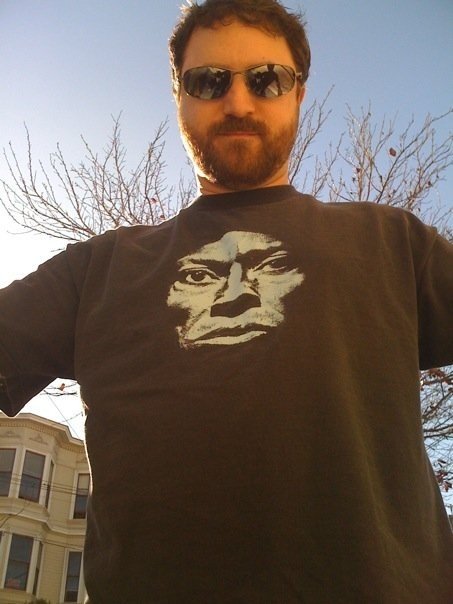 Today’s guest post comes to us from saxophonist Art Brown. Art has been active on the jazz, funk, R&B and hip-hop scenes in Seattle for the last 5 years, and studied Jazz Performance at the University of Washington. He plays regularly in a number of amazing groups, including Hardcoretet, Vunt Foom, Theoretics and Soul Kata. As a skilled and versatile musician and all-around nice guy, Art also gets calls to play with and sub for numerous groups. Which brings us to the subject of his post.
Today’s guest post comes to us from saxophonist Art Brown. Art has been active on the jazz, funk, R&B and hip-hop scenes in Seattle for the last 5 years, and studied Jazz Performance at the University of Washington. He plays regularly in a number of amazing groups, including Hardcoretet, Vunt Foom, Theoretics and Soul Kata. As a skilled and versatile musician and all-around nice guy, Art also gets calls to play with and sub for numerous groups. Which brings us to the subject of his post.
Today Art shares his thoughts on being a sideman, which is something almost all musicians do to a greater or lesser extent. Some notable musicians have made careers playing in other people’s bands, while others don’t take to it at all. I think Art falls somewhere in the middle.
The Art of the Sideman
By Art Brown
This past month, I found myself picking up a string of gigs in which I considered myself a sideman. These were shows and performances in which I enjoyed the music, worked hard to play at a high level, and put on a good show, but was not as heavily invested as I would be with groups that I helped form or for whom I write or arrange music, promote, or otherwise guide in certain directions. I don’t get put in these kinds of situations often, so although it was a new and fun experience, it did get me thinking about the nature of the “hired gun” working musician.
I won’t lie, it feels pretty cool. You’re basically requested to play because someone else has a project they care about that, in their opinion, needs YOU (as well as the rest of the band, of course!) to make it the best show it can be. It also can be a pleasant change of pace in that you slip into worker bee mode: “Tell me what you want me to do musically, and I’ll do exactly that.” This isn’t to say you can just zombie out and go through the motions; it’s a different kind of satisfaction when you fulfill someone else’s vision for their music, and you feel like a true professional, performing your tasks on a high level.
All that being said, by the end of this month I will be sufficiently burned out. Ideas for my own music and bands have been put on the back burner, I have not been able to promote, and my practicing has gone down as well. Also, most of these gigs could only be rehearsed for once or twice, so by the time things really start to gel, the show is over! What’s a hired gun to do?
I should bring forth a few footnotes:
- I have a day job. The sideman is one facet of being a professional musician, a job that arguably needs to be full-time to be done correctly. I realize that most of the problems I’ve had boil down to just having enough time in the day, and having another job seriously handicaps me in that arena.
- I obviously weight my various musical projects in different ways. There are some that are more important to me than others, and this might not be the case with other musicians who are all about playing, no matter what it is.
I guess when it all comes down to it, it depends on the type of person you are. I know musicians that enjoy putting themselves in different situations and trying to rock the “jack of all trades” side of things, and, after all, what musician doesn’t want to expand their palette and try new styles and ways of playing? For right now, though, the sideman is not me. Maybe next month I’ll give the opposite a shot: Focus on a couple of projects, tailor my musical life around them, and work my butt off to make those get off the ground. I’ll let you know how it goes…
What do you think? Do you like being a sideman? Do you only play your own music and no one else’s? Leave a comment and let us know!




Thanks for sharing, Art.
Art, nice post. You could have expanded a bit more on what you were required to do for the various sideman gigs; play as part of a horn section, do a solo, play written lines as the only horn, etc.
As to your question at the end, I think being a leader and a sideman each present different challenges and different learning opportunities. Taking direction from someone else can be difficult, depending on one’s personality, but we all learned to play by playing “other people’s music,” whether jazz standards, classical repertoire, or rock cover songs, right?